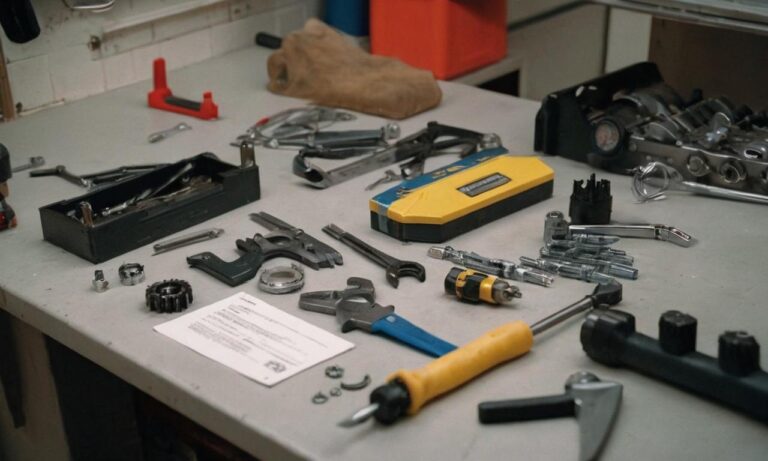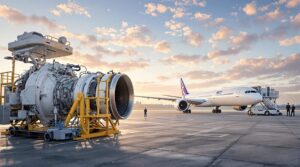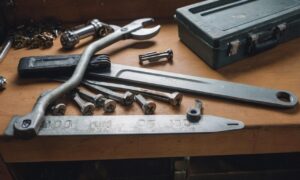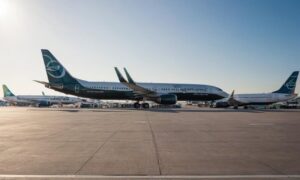If you’ve ever gazed up at the skies and marveled at the sleek, powerful aircraft soaring overhead, you might have wondered about the skilled individuals responsible for ensuring these machines operate at their peak performance. Becoming an aircraft mechanic is a rewarding career path that requires a combination of education, training, and hands-on experience.
## The Journey Begins: Understanding the Basics
Embarking on the path to become an aircraft mechanic starts with a solid understanding of the industry. Aspiring mechanics typically need to complete a formal education program, which can vary in duration. These programs are designed to cover essential topics such as aviation regulations, aircraft systems, and maintenance procedures.
## Educational Requirements: Setting the Foundation
Most aspiring aircraft mechanics pursue an FAA-approved Aviation Maintenance Technician (AMT) program. These programs, offered by various aviation schools and community colleges, generally take around 18 to 24 months to complete. The curriculum includes both classroom instruction and hands-on training, providing students with the knowledge and skills required for the job.
## Gaining Experience: On-the-Job Training
While completing the educational requirements is crucial, gaining practical experience is equally vital in the world of aircraft maintenance. Many aspiring mechanics participate in apprenticeships or internships, working alongside experienced professionals to apply their knowledge in real-world scenarios. This hands-on training period can range from several months to a few years, depending on the specific program and employer.
## Certification: The Key to Professionalism
After completing the necessary education and on-the-job training, aspiring aircraft mechanics must obtain the required certifications. The Federal Aviation Administration (FAA) issues three different types of certificates for mechanics: Airframe, Powerplant, and a combination of both (A&P). To qualify for these certificates, candidates must pass written and practical exams, demonstrating their proficiency in aircraft maintenance.
## Specializations: Tailoring Your Expertise
Once certified, aircraft mechanics can choose to specialize in specific areas, such as avionics or structural repairs. Specializations allow individuals to deepen their expertise and focus on particular aspects of aircraft maintenance, opening up opportunities for career advancement and specialization-related certifications.
## Continuing Education: Staying Ahead in a Dynamic Field
The aviation industry is ever-evolving, with advancements in technology and regulations shaping the landscape. To stay competitive and ensure compliance with industry standards, aircraft mechanics often engage in continuing education and training programs. This commitment to ongoing learning is essential for staying abreast of the latest developments and maintaining the highest level of proficiency in their field.
## Conclusion: A Skyward Career Awaits
So, how long does it take to become an aircraft mechanic? The journey typically spans several years, encompassing formal education, hands-on training, certification processes, and potential specializations. While the timeline may vary based on individual circumstances, the dedication to honing one’s skills and staying informed is a constant in this dynamic and exciting field. If you’re passionate about aviation and enjoy working with intricate machinery, the path to becoming an aircraft mechanic offers a fulfilling and promising career trajectory.
Exploring Career Opportunities: Diverse Paths in Aircraft Maintenance
As you navigate through the journey of becoming an aircraft mechanic, it’s essential to be aware of the diverse career opportunities within the field. Aircraft maintenance extends beyond traditional roles, with avenues such as military aircraft maintenance, commercial airline maintenance, and private aircraft servicing. Each path comes with its unique challenges and rewards, allowing individuals to tailor their careers based on personal interests and preferences.
Industry Innovations: Embracing Technology in Aircraft Maintenance
The aviation sector is constantly evolving, with technology playing a pivotal role in shaping the future of aircraft maintenance. From advanced diagnostics to predictive maintenance algorithms, staying abreast of technological innovations is crucial for aspiring aircraft mechanics. Embracing these advancements not only enhances efficiency but also opens up exciting possibilities for those keen on integrating cutting-edge technology into their daily work.
Frequently Asked Questions
As individuals embark on the path to becoming aircraft mechanics, numerous questions may arise. Let’s address some common queries to provide clarity and guidance:
| Question | Answer |
|---|---|
| How long is the apprenticeship period? | The duration of apprenticeships can vary, ranging from a few months to a couple of years, depending on the program and employer. |
| Are there specialized certifications beyond A&P? | Yes, there are various specialized certifications available, allowing aircraft mechanics to focus on specific areas such as avionics, engines, or structures. |
| What role does ongoing education play in this field? | Continuing education is vital for staying updated on industry trends and maintaining proficiency. Many mechanics pursue additional training to adapt to evolving technologies and regulations. |
The Federal Aviation Administration (FAA) sets the standards and regulations for aircraft maintenance in the United States. Aspiring aircraft mechanics must have a comprehensive understanding of FAA guidelines, ensuring compliance with safety protocols and industry standards. Familiarizing oneself with the intricacies of these regulations is paramount for a successful and sustainable career in aircraft maintenance.
Global Perspectives: International Opportunities in Aircraft Maintenance
For those with a sense of adventure, exploring international opportunities in aircraft maintenance can be an enriching experience. Different countries have unique regulatory frameworks and demands in the aviation sector, providing a chance for mechanics to broaden their horizons and contribute to the global aviation community.






